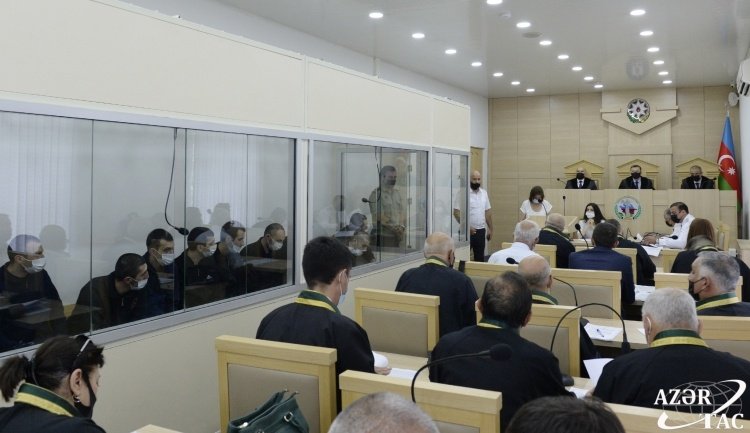
The eighth point of the Artsakh-Azerbaijan-Russia trilateral armistice agreement states that the sides agree to exchange prisoners of war, hostages and other detained persons. This point is the only one remaining undone. Why?
In early December, 2021, footage emerged on social media of the Speaker of the National Assembly Alen Simonyan chatting with an unknown man, saying that the POWs do not exist for him anymore. This footage came as a shock to the Armenian society and parents and relatives of the captives. It also was an answer to many questions. Later on, Armenian Prime Minister Nikol Pashinyan announced that they first have to investigate all aspects of how the soldiers became captive, as there might be criminal consequences. Strangely, after the war Pashinyan kept announcing that POWs are heroes, they are his family and his heart aches for them. He also said that he was willing to exchange his own son Ashot with POWs in Azerbaijan. This, however, never took place, although he “offered it to Azerbaijan but never got a response.” He even used his son’s factor during the parliamentary campaign.
Prisoners of war are being tortured in Azerbaijan. Some of them die not being able to tolerate the menace; some of them become mentally ill for a very long time. For example, they are afraid to sit or sleep at night, fearing that they will be tortured for that. Most of them return with physical injuries.
Armenia’s Human Rights Defender Arman Tatoyan constantly presents urgent reports about the sufferings our soldiers bear, describing torture cases and sadistic acts in details. Tatoyan believes that Azerbaijan’s actions are similar to Ottoman times when the Turks killed, beheaded and tormented Armenians just for their nationality or religion. “Our soldiers were held in degrading conditions, given very little water and almost no food,” he said. Tatoyan sent his reports to a number of international organizations, as well as to His Holiness Pope Francis.
Today, there are still many POWs in Azerbaijan; some of them have been sentenced with different criminal codes. A number of them have been exchanged for minefield maps, as demanded by Azerbaijani President Aliyev. Families of the POWs regularly gather in protests outside the government building, blocking roads and demanding a meeting with the prime minister. Even when the PM meets with some of them (not all), he still doesn’t resolve the problem.
Now POWs are returned to Armenia due to the efforts of the presidents of other countries. So far, around 150 POWs have returned, 109 of them through the direct efforts of the Russian Federation. However, once they return to Armenia, they are not completely safe, as they are interrogated and some of them are arrested. Some POWs have serious health issues, but still remain in custody without any medical support.
ARF Supreme Council of Armenia chairman Ishkhan Saghatelyan believes that we have to strive for a new agreement more beneficial for us. Unfortunately, all points of the trilateral agreement have been complied with, except for the eighth point, the one about the POWs. Saghatelyan also says that the war and the November 9 statement are not a final resolution – with a new agreement changes are possible.



Be the first to comment